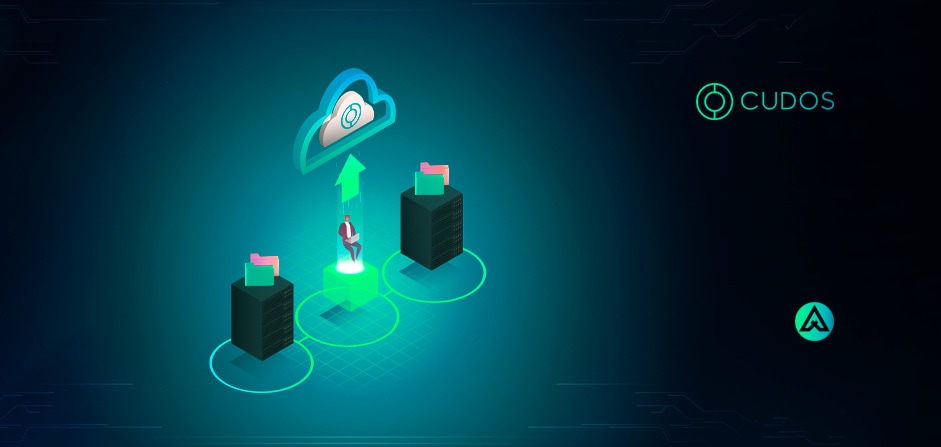Data storage is one of the concerns of companies and developers in all industries, since security is crucial for the protection of information. With the emergence of cloud technologies, companies obtain many advantages for the management of their businesses, but the guarantees regarding the protection in centralized media is a subject that generates debates. The Cudos network provides a decentralized blockchain network, capable of providing the necessary support for this type of operation, and in the following article we will tell you the details.
Cloud storage vs. physical hardware storage
One of the advantages of storing data in the cloud is that it can be accessed from anywhere with just an Internet connection. In addition, the cloud often offers greater storage capacity than physical hardware, so it is possible to save large amounts of data without having to worry about available space.
However, data security in the cloud is a common concern these days, as it is hosted on external centralized servers and can be vulnerable to cyberattacks or errors by the provider company, which is usually a large technology corporation.
Storing data on physical hardware, such as an external hard drive or network storage device, offers greater control over data security. By having them it hosted locally, theyit can be backed up more easily and have more control over who has access to themit. However, physical hardware can be vulnerable to mechanical failure or damage, which can result in the loss of important data. In addition, it is not possible to access the data from anywhere without carrying the physical device with you.
That is why the decision to store data in the cloud depends on the needs and priorities of each developer or company, in order to have accessible information at all times. In turn, as security is a major concern and more direct control over data is required, cloud storage must be supported by decentralized means, such as blockchain technology, for an efficient framework.
That is why the decision to store data in the cloud depends on the needs and priorities of each developer or company, in order to have accessible information at all times. In turn, as security is a major concern and more direct control over data is required, cloud storage must be supported by decentralized means, such as blockchain technology, for an efficient framework.
Advantages in those developed for data access through the Cudos cloud
By having access to data in the Cudos cloud, developers can work from anywhere with an Internet connection, allowing them to be more flexible and efficient in their work. In addition, the constant availability of the data, thanks to the decentralized cloud, means that they do not have to worry about storage or availability problems.
Shared access to data, thanks to the Cudos cloud, can also improve team collaboration between developers. By being able to access the same data in real time, team members can work together more effectively, which can lead to more creative solutions and increased productivity, with the necessary security backing provided by blockchain technology.
In addition, developers will be able to easily integrate data stored in the cloud with other services, such as analytics platforms or project management applications, in the medium term, which can further improve efficiency and collaboration. This can also simplify the development process, as developers can access data from a decentralized source, instead of having to collect it from several different systems or a central node.
How does blockchain technology benefit the Cudos decentralized cloud?
Data security in a blockchain-backed decentralized cloud is based on the immutability of the network. Each block in the chain contains hashed information that links to previous and subsequent blocks, which means that any attempt to modify existing data in one of them would be detected and rejected by the rest of the network. This ensures that data in the decentralized cloud is secure and cannot be tampered with by malicious actors.
In addition, the decentralization of the cloud also protects against attacks in which an attempt is made to control a significant part of the network. This is achieved through the distribution of data and validation between the different nodes that make up the network, which means that an attacker would have to control a large number of them to achieve any type of manipulation of the information.
Lastly, blockchain-based decentralized clouds, such as Cudos, often use end-to-end encryption to protect data privacy. This means that the data is encrypted before being sent to the cloud, so only the sender and recipient can access the data, protecting it against potential attacks or security breaches.
Conclusion
Access to data in the cloud can significantly improve efficiency and team collaboration for developers, allowing them to work more effectively and in real time. Security in a decentralized cloud based on blockchain is based on the immutability of the network, protection against attacks and end-to-end encryption. These factors combined make the Cudos decentralized cloud a more secure option for data storage than the traditional cloud.

